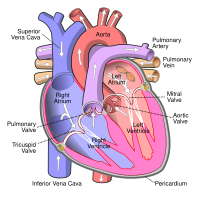
Development and Validation of an Electronic Health Record–Based Machine Learning Model to Estimate Delirium Risk in Newly Hospitalized Patients Without Known Cognitive Impairment
Sign Up to like & getrecommendations! Published in 2018 at "JAMA Network Open"
DOI: 10.1001/jamanetworkopen.2018.1018
Abstract: Key Points Question Can machine learning be used to predict incident delirium in newly hospitalized patients using only data available in the electronic health record shortly after admission? Findings In this cohort study, classification models… read more here.
Keywords: machine; machine learning; electronic health; health record ... See more keywords

Effect of Cognitive Prehabilitation on the Incidence of Postoperative Delirium Among Older Adults Undergoing Major Noncardiac Surgery: The Neurobics Randomized Clinical Trial.
Sign Up to like & getrecommendations! Published in 2020 at "JAMA surgery"
DOI: 10.1001/jamasurg.2020.4371
Abstract: Importance Postoperative delirium in older adults is a common and costly complication after surgery. Cognitive reserve affects the risk of postoperative delirium, and thus preoperative augmentation of reserve as a preventive technique is of vital… read more here.
Keywords: intervention; surgery; trial; older adults ... See more keywords

Circadian Rest–Activity Rhythms, Delirium Risk, and Progression to Dementia
Sign Up to like & getrecommendations! Published in 2023 at "Annals of Neurology"
DOI: 10.1002/ana.26617
Abstract: Delirium is a complex neurocognitive syndrome suspected to be bidirectionally linked to dementia. Circadian rhythm disturbances likely contribute to dementia pathogenesis, but whether these disturbances are related to delirium risk and progression to all‐cause dementia… read more here.
Keywords: risk progression; delirium risk; delirium; dementia ... See more keywords

Identification of risk factors for postoperative delirium in elderly patients with hip fractures by a risk stratification index model: A retrospective study.
Sign Up to like & getrecommendations! Published in 2021 at "Brain and behavior"
DOI: 10.1002/brb3.2420
Abstract: INTRODUCTION Postoperative delirium is one of the most common and dangerous psychiatric complications after hip surgery. The aim of this study was to investigate the incidence of postoperative delirium in elderly patients after hip fracture… read more here.
Keywords: hip; risk factors; elderly patients; delirium ... See more keywords

Identifying hormones and other perioperative risk factors for postoperative delirium after endoscope-assisted transsphenoidal pituitary adenoma resection: A retrospective, matched cohort study.
Sign Up to like & getrecommendations! Published in 2023 at "Brain and behavior"
DOI: 10.1002/brb3.3041
Abstract: OBJECTIVE As a complex and acute brain dysfunction, if postoperative delirium (POD) occurs in the postoperative period, it will lead to a prolonged length of stay in the critical care unit, with increased hospitalization costs… read more here.
Keywords: pituitary adenoma; assisted transsphenoidal; delirium; resection ... See more keywords

An association between cancer type and delirium incidence in Japanese elderly patients: A retrospective longitudinal study
Sign Up to like & getrecommendations! Published in 2022 at "Cancer Medicine"
DOI: 10.1002/cam4.5069
Abstract: There is not a known elevated prevalence of delirium in older adult cancer patients. However, it is unknown if the incidence of delirium varies by cancer type among older adult patients. Therefore, this study aimed… read more here.
Keywords: cancer; incidence; delirium; cancer type ... See more keywords

Incremental cost and length of stay associated with postprocedure delirium in transcatheter and surgical aortic valve replacement patients in the United States
Sign Up to like & getrecommendations! Published in 2019 at "Catheterization and Cardiovascular Interventions"
DOI: 10.1002/ccd.28014
Abstract: To explore the impact of post‐procedure delirium on resource utilization following transcatheter and surgical aortic valve replacement (TAVR and SAVR, respectively). read more here.
Keywords: transcatheter surgical; aortic valve; surgical aortic; delirium ... See more keywords

Five short screening tests in the detection of prevalent delirium: diagnostic accuracy and performance in different neurocognitive subgroups
Sign Up to like & getrecommendations! Published in 2017 at "International Journal of Geriatric Psychiatry"
DOI: 10.1002/gps.4633
Abstract: Delirium is prevalent and serious, yet remains under‐recognised. Systematic screening could improve detection; however, consensus is lacking as to the best approach. Our aim was to assess the diagnostic accuracy of five simple cognitive tests… read more here.
Keywords: short screening; delirium; five short; diagnostic accuracy ... See more keywords

Delirium pathophysiology: An updated hypothesis of the etiology of acute brain failure
Sign Up to like & getrecommendations! Published in 2018 at "International Journal of Geriatric Psychiatry"
DOI: 10.1002/gps.4823
Abstract: Delirium is the most common neuropsychiatric syndrome encountered by clinicians dealing with older adults and the medically ill and is best characterized by 5 core domains: cognitive deficits, attentional deficits, circadian rhythm dysregulation, emotional dysregulation,… read more here.
Keywords: pathophysiology updated; updated hypothesis; etiology; hypothesis etiology ... See more keywords

Plasma 5‐HIAA activity indicative of serotonergic disturbances in cognitively impaired, elderly patients experiencing postoperative delirium
Sign Up to like & getrecommendations! Published in 2021 at "International Journal of Geriatric Psychiatry"
DOI: 10.1002/gps.5677
Abstract: Delirium frequently arises in older demented and non‐demented patients in postoperative, clinical settings. To date, the underlying pathophysiological mechanisms remain poorly understood. Monoamine neurotransmitter alterations have been linked to delirium and cognitive impairment. Our aim… read more here.
Keywords: plasma hiaa; patients experiencing; indicative serotonergic; delirium ... See more keywords

Identification of risk factors for postoperative delirium after esophagectomy: Methodological issues
Sign Up to like & getrecommendations! Published in 2020 at "Journal of Surgical Oncology"
DOI: 10.1002/jso.25881
Abstract: To the Editor, With great interest, we read the recent article by Dezube et al determining the risk factors of postoperative delirium (POD) after esophagectomy. They showed that POD was common with an incidence of… read more here.
Keywords: risk; analysis; study; risk factors ... See more keywords